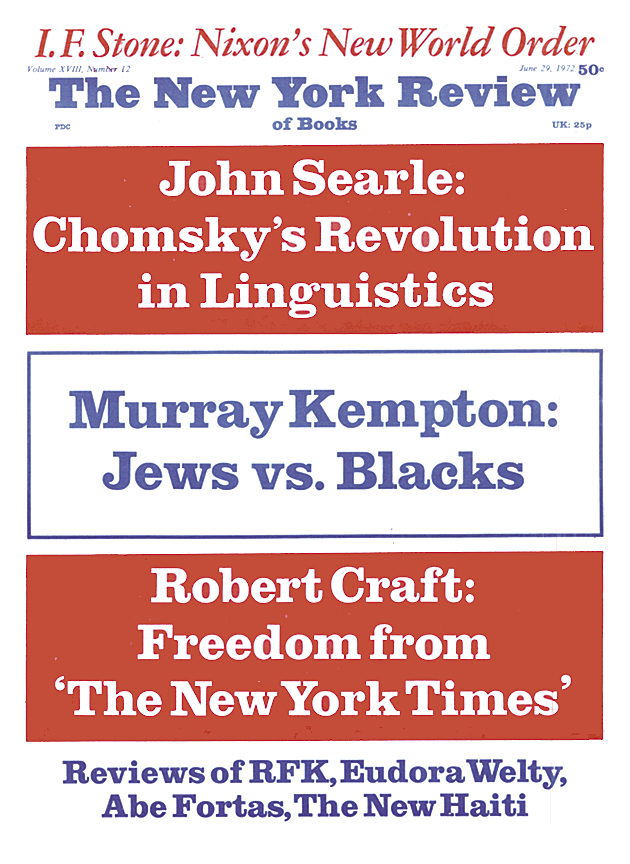To the Editors:
May we urge all readers of the Review—our colleagues in academic life, in writing, editing and publishing, in the arts and sciences—to attend to one piece of unfinished business before the end of the academic year and the start of our summer dispersal: that is, to send a contribution, large or small, to the New York Public Library, Room 210, Fifth Avenue and 42nd Street, New York, N.Y. 10018. Checks should be made out to “NYPLNEH Grant” because funds are needed to match before June 30 the half-million-dollar grant pledged to NYPL by the National Endowment for the Humanities. Thus half a million dollars in gifts can become a million dollars in support for the Library; and its magnificent reference collections can be kept available to the public—to us—for another year.
The New York Public Library has a well-deserved reputation as one of the half-dozen greatest reference libraries in the world. But it has a bad name for fund-raising purposes. Though called “New York,” it serves the whole nation as a prime research resource, as many readers of the New York Review well know.
Though called “Public,” the reference library is a private institution in organization and funding. In the last two years, New York State has made a significant contribution, but New York City pays for only building maintenance—that is, cleaning, electricity, security—of the 42nd Street and other reference library buildings. Essentially, costs of books and other reference materials (their acquiring, cataloguing, preserving) and costs of librarians continue to be paid out of private funds.
Today the annual income from New York Public Library endowments falls several million dollars short of keeping the reference collections at their present level of quality even without service to the public. At one time the Library’s doors were open to the public thirteen hours a day, on 365 days of the year; then the working man, the untrained, unmatriculated scholar could use freely and anonymously, at no cost to himself, the riches of the reference collections. A year ago, however, the Library’s financial crisis forced early closing of the reference division at 6 PM, and complete closing on weekends and holidays. Certain reference divisions (performing arts, science and technology) narrowly missed being closed entirely to the public this year.
A temporary respite can be won by the generosity of the NEH together with contributors like ourselves, the users of NYPL’s reference collections, who best know their value. Contributions sent this week to NYPL can win time, time that could mean the preservation of this great Library as a public resource, in the widest, openest sense.
Hannah Arendt, Ann Birstein, William F. Buckley, Dr. Eric T. Carlson, Malcolm Cowley, Phyllis Dain, Ralph Ellison, James Thomas Flexner, Betty Friedan, Eugene Genovese, Arnold Gingrich, Gertrude Himmelfarb, Irving Howe, Robert Hutchinson, Alfred Kazin, Robert Kotlowitz, Irving Kristol, Martin Mayer, Ellen Moers, Ernest Nagel, Carl Resek, Arthur Schlesinger, Jr., Harold C. Schonberg, Theodore Solotaroff, Lionell Trilling
This Issue
June 29, 1972


